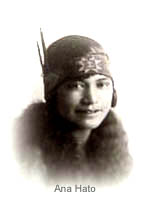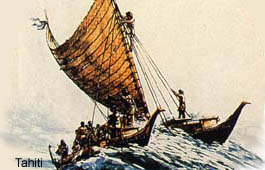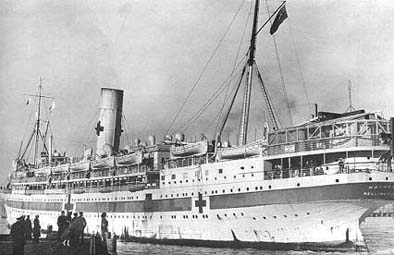1924 - a ride on a coastal steamer inspired Wharetini Rangi
 Wharetini
Rangi was born in 1885 at Tolaga Bay, and educated
at Te Aute College. Wharetini
Rangi was born in 1885 at Tolaga Bay, and educated
at Te Aute College. In in 1907 his wife Roto had started a Church of England mission to Tuhoe people in Ruatoki (20 km south of Whakatane) and she ran it there with Wharetini's aid for 50 years. They raised four sons and three daughters. In 1924 Rangi went to train as a Church of England minister at St John's Theological College, Auckland, separating him from his wife of 15 years, Rotu Kereru. He would have traveled from Tauranga to Auckland on the SS Matangi. Wharetini probably wrote "Matangi" to express the feelings he experienced as sailed away to St John's from Tauranga Harbour on the Matangi in 1924, with the Te Arawa mountains receding into the growing distance.
The
Rev Wharetini Rangi was eventually ordained as a
Church of England minister in 1927. He served at
Porangahau, Tokomaru Bay and at Ruatoki, and went
to North Africa as padre to the Maori Battalion.
A prominent figure on the East Coast, he was an early member of the Whakatane Historical Society, and noted for his ability as interpreter of karakia. He was also a Justice of the Peace, and awarded the MBE for his services to the government. (TeAoHou60, TeAoHou20, NZETC 1930 - the Rotorua Maori Choir is wairangi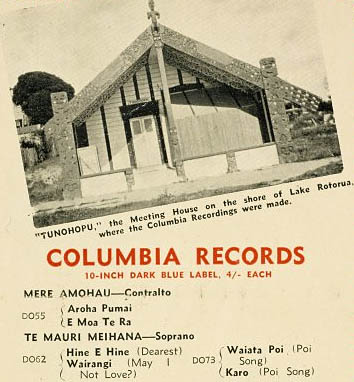
In the late 1920s, a few bright young Arawa girls also headed for Auckland, for well-paid employment, leaving their friends and lovers bereft. And so, in these words from a 1930 Columbia recording, the members of the Rotorua Maori Choir express their loss with more emotion and less dignity.
5. "Te a-ro-ha" is standard pronunciation and better than the forced "Te A-raa-wa," but it is not standard Maori speech. 6. Wai-rangi means 'watery-minded' - emotionally disturbed, irrational, hysterical, infatuated.
|
| E
rere ra te matangi7
I waho Maketu8 Kei reira ra koe - e hine Noho wairangi ai e Mauria mai to aroha Ki i tawhiti e Waiho au i muri nei Tangitangi hotu ai e. |
Fly
the wind yonder from Maketu where you, oh darling, always so distressed May the wind carry your love To this distant place I'm abandoned, grieving here, wailing and sobbing always. |
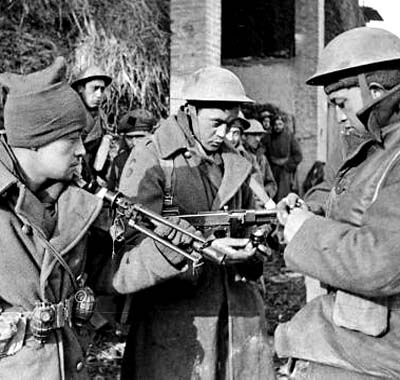
7. te matangi, with
a small m, is the wind
that comes wailing, "ma - tangi," a
very old word from Java's "angin."
On the other hand, a refreshing breath of wind is a
"hau," a Maori word originating in Tahiti.
8.
Maketu is the bay where Te Arawa people
came ashore from Hawaiiki. The singer says that only
the wind can travel those great distances now, from
the Middle East to his Te Arawa homeland, and then
back again.
Dr Tapsell kindly wrote to me and told me that he learnt this version from his elders when he was a boy growing up at Makutu.
Notice how the song has changed. In the 1920s it was the voice of a mature, well-educated 40-year-old in a peaceful theological college telling of his deep love for his rock-steady mountain-wife 200 miles away.
Now we hear the voice of a lonely, frightened teenage soldier in a murderous war ten thousand miles away from his lovesick and vulnerable girlfriend.
... and Rev Waretini salutes the hospital ship Maunganui.
|
Haere
ra "Maunganui" |
We
passed the hospital ship
"Maunganui" |
The Official History of the Maori Battalion says Padre Wharetini Rangi was 55 when he enlisted, although his army records give his year of birth as 1891, making him "49 years old." Thus he was rather old for infantry work, with three sons serving with him in the battalion, but the Official History says he made little of age and was giving splendid service up to the time when both his eardrums were burst by an exploding shell at Alamein. NZETC
1950s - the exodus to Australia began

| E
rere ra, te matangi
Ki waho Ao-tea-r'a Kei reira ra koe - e hine E arohatia nei e. Mauria taku aroha Ki waho Ao-tea-r'a Waiho au i muri nei Noho wairangi ai e. |
You
are
sailing away on the
wind to far beyond New Zealand You are there on the ship, oh girl, so loved by me here. Take my love with you away from new Zealand leaving me behind here totally infatuated always. |
In the 1950s, Maori started migrating overseas in the Wanganella, Dominion Monarch, Captain Cook, Orcades, Arcadia... mostly to Australia, but also to London, California, Utah, and other lands. Many have returned with families: there are now 5000 Australian-born Maori living in New Zealand.
But many more have stayed overseas; about 140,000 Maori now live there. Maori Overseas
In this version of Matangi, by Inia Te Wiata, the singer is staying in New Zealand/Aotearoa while his girlfriend heads overseas. But in fact it was Inia himself who had migrated overseas, to London. The words in English are those given in The Inia Te Wiata Songbook. It was Inia te Wiata's singing that led to the naming of Sam McGredy's famous Matangi rose.
And wairangi becomes mokemoke

.
|
Mauria
taku aroha Ki waho Waitemata Waiho au i muri nei Noho mokemoke ai e. |
Carry
my love beyond Waitemata. Leave me behind here in loneliness. |
1960s
- the new urban Maori are unified by Hawaiki Nui

In 1955, for every 100 Maori living on rural marae there were 33 living in towns. By 1975, for every 100 rural Maori, there were 300 in the towns.
By the mid 1960s, there was a generation of young Maori who had been born in the cities. Many did not know about their tribal roots. Many urban Maori found it difficult to cope without the support of their extended family. And being cut off from traditional ways of life meant that the children of migrants lacked a sense of tribal and Maori identity. Te Ara
Racial discrimination led to Maori clustering together, so that Porirua and Otara became Maori communities, but they were communities of Maori from different iwi, different waka, who had arrived together to make a new life in an alien place, just like the ancestors 700 years ago from Hawaiki Nui.
And so the unifying story of this pan-tribal migration from Eastern Poynesia became popular. Modified versions of songs like Hoia Hoia Ra, and Hoia Ra Te Waka Nei were sung to recall this event, in order to build unifying bonds among those who had lost their tribal ties.
And once again, Matangi was modified, into this 1960s farewell duet, as urban Maori wept for those whom they had left behind, and then set about making new marae. From the 1975 LP Haeremai Ki Au - Come with Me.
| (Hine) E rere ra, te matangi Ki runga Hawai-ki-nui e Kei reira koe, ko e tama I arohatia nei e. (Tama) Mauria ra te aroha Ki runga Hawai-ki-nui e Kei reira ra ko e hine I arohatia nei e. |
(Woman
sings) Speed away on the wind, Away from our homeland You are there on the voyaging canoe, my darling, so loved by me here. (Man sings) I will carry your love away with me to beyond our homeland Leaving you there, oh girl So loved by me here on this waka. |
1999 - Kiri flamboyantly carries her people's love to
the whole world
In 1999 Maori song expert Henare Te Ua helped opera singer Kiri Te Kanawa produce a CD of Maori songs that had been first sung to tourists in the parlour-piano era of 1910-1940. The songs were sung in a lush, easy-listening style which made the CD highly popular.
Kiri's album celebrated 75 years of the Maori exodus from isolated coastal villages to big cities, from Wharetini Rangi's voyage to Auckland, and now involving 150,000 Maori living all over the world.
| E
rere ra, te matangi
Ki runga Ao-tea-r'a Kei reira koe ko e hine I arohatia nei e. Mauria taku aroha Ki te Ao whanui Waiho mai au i muri nei Noho wairangi ai e. |
Fly
away on the wind, Away from New Zealand You are there, my darling, so loved by me left behind here. Carry my love away with you To the whole world leaving me here totally infatuated always. |
2020 - Barbara Ewing sings Matangi as an intimate
lovesong
| E
rere ra, te matangi
Ki waho Tauranga Kei reira ra koe, hine E arohatia nei e. Mauria ra te aroha Ki tawhiti e Waiho mai au i muri nei Tangi hotuhotu wai e Maringi noa te roimata I aku kamo e Te ki te ara koe, hine E arohatia nei e. |
Fly
away on the wind, away from Tauranga You are there oh girl, so loved by me here in Tauranga Carry my love away with you far, far away leaving me here weeping with sobbing tears The tears pour down without restraint from my eyes, ay for you, exhausted on the road, darling so loved by me here. |
Early sources
Matangi - Ana Hato, 78 rpm Parlophone recording 1927, during the Royal Visit of the Duke of York (later George VI) to Rotorua for the unveiling of a WW1 memorial to 'the Arawas.'
Matangi
and E Te Arawa Tirohia Ra
Two NZ pieces published in the newspaper called
'New Zealand Pictorial News' on 1 Sept 1928.
They
are arranged by Hemi Piripata (Jim Phillpot).
Matangi
- Love Ditty - in the book "Ten Maori
Songs" c.1939
Arranged by Hemi Piripata (James H Phillpot, an
Auckland church organist, d, 1937)
Published by Chas Beggs.
The song is © 1930 to Arthur Eady Ltd, Queen St,
Auckland
with the copyright assigned to Chas Beggs (Aust)
in 1939.
It
says "Available on Columbia Record DO-59 and
Parlophone A 2803."
Sam McGredy's Matangi rose
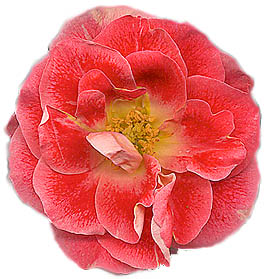
Dr. Samuel McGredy was a renowned rose breeder in Northern Ireland, just like his father, grandfather and great-grandfather before him. In 1970 he heard Inia Te Wiata singing Matangi, a song that captured the Maori emotion Sam was so fond of, and which influenced him to move to New Zealand not long afterwards.
It
seemed to him appropriate that he recognise this
song in his first important New Zealand rose,
hence Matangi became the name that marked the
beginning of Sam McGredy's New Zealand era. The
Matangi rose was extremely popular, quickly
becoming one of the top five in the Rose Society
lists, and keeping its place there for ten
years.
Kiwi Song List - Maori Song List - Home
Published
on the web 15 July 2006, revised March 2020,
